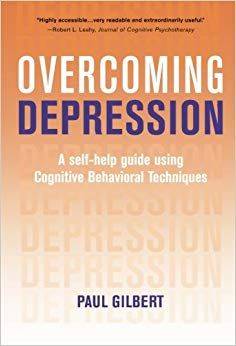
Download Overcoming Depression: A Self-Help Guide Using Cognitive Behavioral Techniques PDF EPUB
Author: Paul Gilbert
Pages: 624
Size: 2.752,11 Kb
Publication Date: September 8,2009
Category: Depression
The Overcoming self-help guides use Cognitive Behavioral Therapy (CBT) ways to treat disorders by changing unhelpful patterns of behavior and thought.� Overcoming Depression outlines Paul Gilbert’s compassionate method of an extremely common disorder. Among the globe’s leading psychologists, Gilbert outlines a Cognitive Behavioral Therapy-based system which consists of user-friendly step-by-step suggestions, case research, and practical suggestions to help victims of depression manage their lives. CBT is normally internationally favored as a useful method of overcoming long-position and disabling circumstances, both emotional and physical.
This completely revised third edition provides been extensively up-to-date and rewritten to reflect over a decade of new study on understanding and dealing with depressive disorder, particularly the need for developing compassionate means of considering, behaving and feeling. Which includes two fresh chapters and guided exercises that counteract mental poison and emotions, Overcoming Despair teaches readers how exactly to develop the compassionate interest and behavior had a need to conquer their disease.
Accessible and useful, Overcoming Depressive disorder is normally a must-possess manual for those who are depressed, and can be a great resource with their friends and family members, psychologists, and those employed in the medical career.
- Explains the sources of depressive disorder and why it really is such a common disorder
- Runs on the step-by-step approach predicated on CBT techniques for comfort
- Includes materials on all sorts of major depression
- Describes the way the body and mind can interact to provoke depressive disorder
- Considers related problems such as for example shame, anger, perfectionism, and guilt�